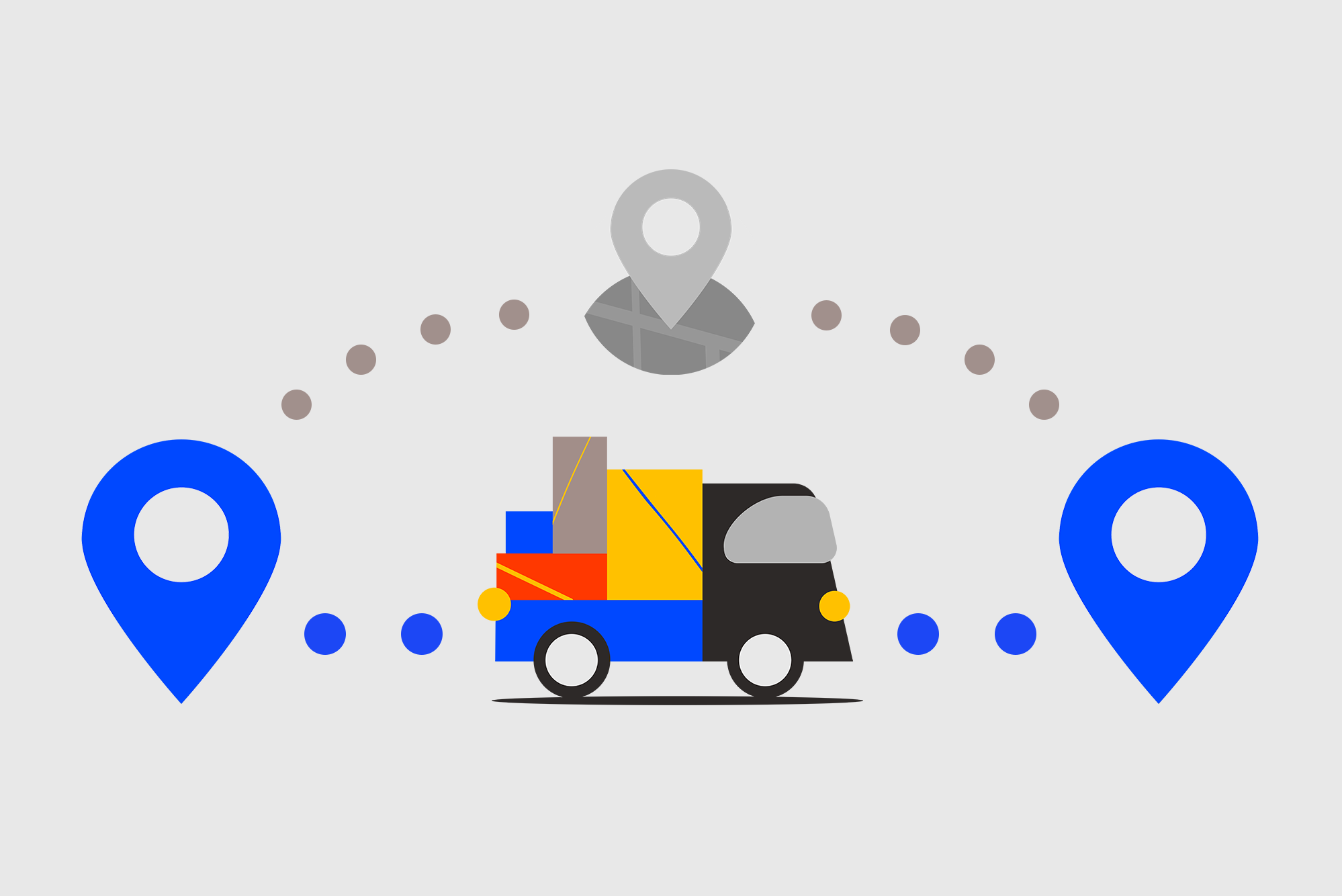Mumbai’s bustling ports, railway terminals, mills, markets, and narrow, congested roads underscore the city’s dependence on complex logistics networks. Mumbai, India’s financial capital and business hub, relies on a smooth movement of raw materials and completed commodities into and out of the city.
However, significant challenges plague last-mile delivery operations. Read on as we delve into Mumbai’s unique logistics landscape, explore how data analytics can drive optimization, and strategize data-powered solutions to the city’s last-mile conundrum.
Navigation Mumbai’s Distinct Urban Logistics Landscape
Dubbed the City of Dreams, Mumbai handles over 60% of India’s container cargo traffic. The city’s ports and congested roads mean logistics lies at the heart of its economic might. However, some unique challenges impair last-mile delivery operations:
Unparalleled Population Density
With limited land space and geographic constraints of being surrounded by the Arabian Sea, Mumbai’s 12.5 million residents jostle for space. With a population density of 32,303 people per square mile, far exceeding other Indian cities and global megacities, neighborhoods stretch into winding alleys and cramped lanes inaccessible for large vehicles. This significantly impacts delivery routes and timelines.
Perennial Traffic Snarls and Parking Shortages
Mumbai’s traffic speeds average 14 km/h, making last-mile delivery arduous. Delivery fleets get trapped for long periods, battling chaotic traffic conditions. Personnel also find parking spaces must be improved, further delaying drop-offs and increasing double parking cases. During monsoons, water logging turns roads into rivers, exacerbating mobility challenges.
Fragmented and Unstructured Addressing Formats
Many Mumbai localities have unstructured address formats with building names instead of numbers. Residential high-rises often have multiple gates used interchangeably. Such fragmented and unclear addressing makes deliveries easier with local guidance. E-commerce companies need help with pinpointing recipient locations.
How Data Analytics Can Overcome Mumbai’s Last-Mile Conundrum
Data is emerging as an invaluable panacea empowering Mumbai businesses grappling with last-mile complexities. Analytics provides actionable insights into:
- Granular delivery trends
- Evolving customer preferences
- Real-time traffic flows
- Location Intelligence
With this intelligence, companies can optimize real-time routes, improve delivery ETAs, strategically allocate resources, and boost last-mile productivity.
Mining Delivery Data for Actionable Intelligence
- Analyzing past data on delivery durations, addresses, and agent performance allows the identification of peak delivery periods, high-demand and delay-prone areas and resource gaps needing attention.
- Assessing customer order histories and preferences provides insight into optimal delivery windows when customers are likely to be available to receive shipments and preferred delivery modes.
- Overlaying real-time traffic feeds facilitates dynamic route optimization to skirt congested patches and minimize delays.
- Plotting out delivery locations with geocoding intelligence reconciles Mumbai’s fragmented address formats for improved traceability and operational accuracy.
The Power of Data-Based Decisioning
Adopting data-powered logistics strategies allows Mumbai companies to:
- Provide highly accurate ETAs factoring in traffic flows, weather delays, etc.
- Identify reliable delivery partners for specific zones based on historical performance.
- Optimize inventory planning, aligning supply forecasts with predicted delivery demand.
- Tap into micro mobility leveraging bicycles, e-bikes, and e-scooters for navigation in cramped urban lanes.
- Enable dynamic route planning with real-time data for reliable customer commitments.
Building a Smart Last-Mile Logistics Strategy
Here is a structured blueprint for harnessing urban logistics data and steering last-mile success in Mumbai:
Step 1: Setup Tracking and Data Collection Infrastructure
- Install GPS trackers across delivery fleets
- Integrate order/delivery data from CRM and online store platforms
- Ingest real-time traffic feeds from platforms like Google Maps
- Log address and geocodes against customer delivery locations
Step 2: Clean, Structure, Standardize Data
- Fix data inaccuracies and inconsistencies.
- Normalize data from disparate systems into standardized schemas.
- Tag key attributes for analysis, e.g. delivery costs, time, agent performance, etc.
- Train analysts on data mining techniques to drive insights.
Having business analysts who can correctly interpret data is crucial for data-driven decisions. Investing in skills training via business analysis course and BA analyst course builds strong analytical capabilities.
Step 3: Translate Insights into Logistics Initiatives
Use statistically-validated data insights to drive strategic initiatives:
- Design delivery routes based on congestion heatmaps
- Assign deliveries across zones as per historical agent performance
- Develop smart scheduling aligned to typical customer availability patterns
- Offer flexible delivery options like pickup points in high-demand areas
Step 4: Continuously Evaluate and Refine Logistics Operations
Keep tracking relevant performance metrics to quantify impact and address operational gaps:
- Delivery timeliness vs. initial ETAs
- First-attempt delivery success rates
- Customer satisfaction scores
- Overall operational and delivery costs
- Carbon emissions from the delivery fleet
Driving Last-Mile Success with Data: Key Strategies for Mumbai Companies
Beyond foundational tracking and analytics, some proven strategies for Mumbai companies to boost productivity:
Optimize Inventory and Demand Forecasting
Align supply planning with predicted demand by geography and seasons based on historical order data. Ensure adequate inventory at distribution centers to meet delivery commitments despite traffic unpredictability.
Deploy Alternative Mobility and Delivery Modes
Tap into micro mobility leveraging bicycles, e-bikes and e-scooters for small payload deliveries on narrow streets. Crowd source on-demand agents during peak times for added bandwidth. Offer customers self-pick-up options from retail outlets or centralized hubs.
Customer-Centric Delivery Windows and Communication
Offer narrower delivery windows based on traffic insights to set accurate expectations. SMS/email customers for deliveries requiring coordination. Enable GPS tracking and push updates on delays to boost convenience.
Incentivize Agents for Productivity and Compliance
Implement dynamic incentive structures correlating payouts to on-time deliveries, positive customer reviews and following standard operating processes. Ensure compliance via safety protocol checklists submitted after each trip.
Collaborate With City Traffic Authorities
Partner with traffic authorities to access camera feeds and get road notifications for proactive route planning. Alleviate parking woes by making allocated delivery bays available and developing load/unload protocols.
Paving the Road Ahead: Data-Powered Urban Logistics
With increasing preference for online shopping and delivery, agile last-mile logistics is pivotal to Mumbai realizing its potential as India’s hub of commerce and trade. Data plays a force multiplier effect – providing intelligence for logistics players to tackle operational challenges at scale and speed. Unlocking its potential empowers businesses to:
- Delight customers with reduced delays, flexibility and transparency in deliveries
- Boost productivity via streamlined planning and real-time coordination enabled by technology.
- Drive cost efficiencies by optimizing routes, inventory and resource allocation.
- Enable sustainable deliveries by minimizing unnecessary mileage and carbon footprint.
As Mumbai aims to cement its tagline as a City of Dreams, data-guided logistics will be key in turning this into reality. Let data propel informed decision-making to plan resilient operations, delight customers, and manifest the maximum economic potential of Maximum City.
Business name: ExcelR- Data Science, Data Analytics, Business Analytics Course Training Mumbai
Address: 304, 3rd Floor, Pratibha Building. Three Petrol pump, Lal Bahadur Shastri Rd,
opposite Manas Tower, Pakhdi, Thane West, Thane, Maharashtra 400602
Phone: 9108238354, Email: enquiry@excelr.com












